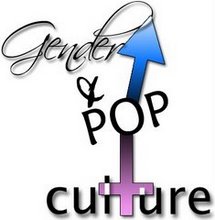1) Where has your Blog buddy shown strong analytical work (be specific—is it a particular post, a type of analysis, a site for analysis that seemed to click more so than others, etc)?
2) How could your Blog buddy use this strength for the final Blog post and presentation?
3) Think about the following statements in relation to your Blog buddy’s Blog and then provide feedback on each area (constructive praise/criticism):
The Blog is on a topic that has been clearly evident in the Blog posts throughout the semester
-The Blog is on a topic that seems to interest my Blog buddy
-My Blog buddy’s topic is one that has produced a good set of posts that were analytical used gender as a primary category of analysis
-The posts make analytical arguments.
-The posts are understandable and each post logically outlines and supports the argument presented.
-The posts were clear, provided insight, evidence, and analysis to connect the topic with the assignment for each of the posts
-The sources cited in each post are relevant to the topic and help to aid the understanding of the argument and/or assisted in proving the argument.
-The quotes used illustrate a broad range of course readings throughout the semester.
-The quotes were clear and succinct; additionally, the material was presented so that I could differentiate the Blog buddy’s ideas from that of the author cited.
4) Finally,
-I thought it was great when you...
-I found it confusing when you…
-You’re really great at…
-I wish you could focus (more) on/alter/edit/explain/expand on/etc these three things…
Friday, April 20, 2007
Subscribe to:
Post Comments (Atom)


4 comments:
Strong analytical work is shown throughout your blog. Two posts stand out the most; “Genesis and Gender” and “A Lesson from Happy Lesson.” In “Genesis and Gender,” you bring to the table a show that contradicts society’s norms about gender. You are very effective in conveying the ideas the show portrays. By pin-pointing the gender and corresponding personalities of two main characters, we are shown the counter-hegemony that exists. Furthermore, you present a key analysis of the “mistake” the show makes; people are either male or female.
“A Lesson from Happy Lesson,” is a very interesting post about what seems to be a very interesting show. The unique family structure of the main character is a great source for analysis. By bringing to light society’s depiction of what a mother should be (calm, caring, nurturing, and problem-solving), as well as the media’s frequent attacks on “bad mothers,” your analysis of non-traditional mothering develops importance. The validity of the question you pose, “can someone be a good mother without fitting the mold,” is proven through the examination of the mothers in Happy Lesson. Also, you are very successful in analyzing the lesson the writers of the show subconsciously teach coupled with society’s take on non-traditional mothers.
Your strength in analytical writing will help you in many ways. Being able to successfully pull important ideas, themes, etc. out of a scholarly piece of work and use them to interpret and analyze gender in popular culture will certainly aid you in writing your final blog post. The facts that certain anime goes against societal norms in specific ways and that you have already effectively analyzed this fact, can be used to strengthen your final post. If this seems to be a dominant trend in anime, perhaps it could be used as a point of analysis.
You have created a distinctive blog which captures a unique area of popular culture, anime, and gender analysis all in one. The topic of anime is clearly evident throughout the entire blog, and you seem to be extremely knowledgeable, as well as interested, in your topic. Each post uses gender as a primary focus of analysis, had a clear point, and provided insight and evidence to the claim. It was; however, somewhat difficult to pair each post with its specific post instructions, making it difficult to tell if the analysis connects with the assignment; simply adding a label is an option. The sources used in your posts are relevant to their sites of analysis within the topic, and they help to prove your argument. However, it would be more effective to actually quote the author of the reading rather than just referring to it.
I thought it was great when you didn’t overlook the “mistake” that Neon Genesis Evangelion makes in their attempt to defy hegemonic norms. You write well, and you are successful in your analyses. I was; however, a bit confused by your response to Madeline Ashby’s post in that the stereotypes referred to are unclear. It would have been helpful to have more background information on anime in general for readers who are uncultured in the realm of anime. Incorporating actual quotes would help to further enforce your claims as well as provide a clearer understanding of the analysis as a whole. Also, it might be a good idea to proofread your posts again to eliminate certain grammatical mistakes.
Overall, your blog is a fantastic examination of anime and race, class and gender. You are successful in your analyses and you exhibit your points clearly. I enjoyed reading and learning about anime in general, in addition to the actual analyses. I predict your final blog post will effectively wrap up the points you have made and the themes you have presented. Great job!
Post a Comment